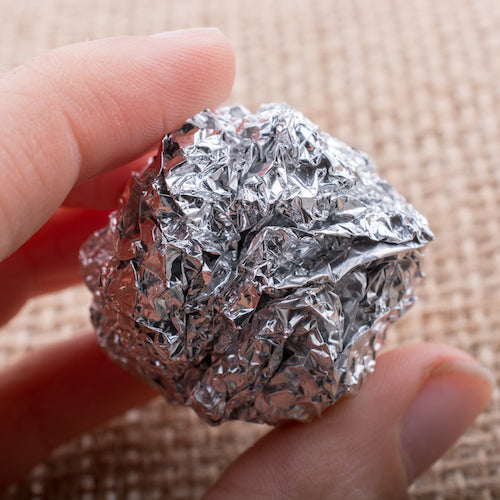The Dangers of Aluminium Foil
Posted on September 04 2023
Heating aluminium foil, often referred to as "tin foil," can potentially have negative health implications due to the risk of aluminium leaching into food. Aluminium is a metal that can react with certain types of acidic or salty foods, particularly when exposed to high temperatures.
When aluminium comes into contact with hot, acidic, or salty foods, it can leach into the food. This means that tiny amounts of aluminium can migrate from the foil into the food you're cooking. While aluminium is naturally present in many foods and beverages (due to its widespread occurrence in the Earth's crust) and is generally considered safe in small amounts, excessive intake can potentially lead to health concerns.
Elevated levels of aluminium intake have been associated with health issues such as Alzheimer's disease and other neurological disorders. However, the scientific community is still studying these potential links, and it's important to note that the exact relationship between aluminium and these health conditions is not fully understood.
As a precaution, it's a good idea to minimise aluminium exposure, especially when it comes to cooking or storing acidic or salty foods in contact with aluminium surfaces.
To reduce the potential health risks associated with heating aluminium foil:
Use alternatives like parchment paper or oven-safe glassware for cooking or baking.
If you do use aluminium foil, avoid wrapping acidic or salty foods in it, especially when heating.
Do not use aluminium foil in direct contact with open flames or high heat sources, such as a barbecue grill or a broiler.
When using aluminium foil for grilling or baking, keep it from coming into direct contact with the food by placing a layer of parchment paper between the foil and the food.
It's important to note that while there are concerns about aluminium foil and health, the risks are generally associated with high and prolonged exposure.
Using aluminium foil occasionally and following safe practices should help minimise any potential health risks.
There is a significant concern regarding the use of aluminium-based tinfoil, prompting people to seek alternatives. This is especially pertinent when dealing with cold items, where the choice is more straightforward.
For wrapping chilled foods such as sandwiches, alternatives include:
Wax paper
Butcher paper
Parchment paper
Honey Wraps
Compostable zip lock bags
When it comes to cooking, these safer options are available:
Utilising stainless steel and other approved metal pans
Glass bakeware with a lid is a great option
Using unbleached parchment paper as a lining for pans
Bake on a silicone reusable baking mat
Some sources suggest it's acceptable to create a tent over a roast in the oven with tinfoil, as long as there's no direct contact with the food. The resulting condensation will return to the dish.


